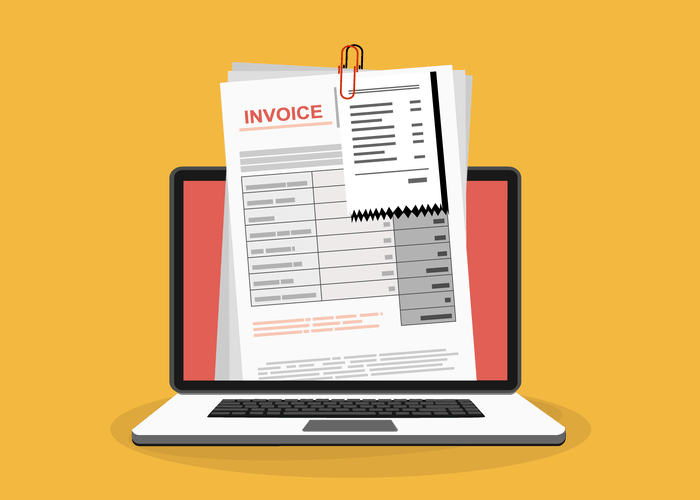Construction Accounting Hauppage NY Smithtown CPA

Since construction accounting is project-centric, you’ll need a way to track, categorize, and report transactions for each job. Accounting is an essential part of running a successful construction business. However, managing your business finances correctly doesn’t always come naturally—especially if you’re not much of a numbers person. What’s more, accounting for construction company finances has some unique challenges compared to other types of businesses.
- This video shows you why it is essential that you have a precision construction accounting system and shows you the impact it will have on your growth and profits.
- Business owners should incorporate both the business’ needs and personal financial goals into plans for future management, successor selection, and shaping their legacy.
- This may include service work, design services, consulting, engineering, sourcing materials, and more.
- There are, of course, tangible benefits of embracing such an advanced approach.
- Features typically include project accounting, job costing, and specialized progress billing.
- This will include the AP, AR, and GL features, along with job costing and progress billing capabilities.
How do you record construction expenses?
Finally, due to the complexity of construction projects, unforeseen issues often arise, leading to additional costs or time on the project. If you or your customer hasn’t planned and budgeted for these potential issues, they can cause the entire project to fail. The purpose of the Act is to protect local wages from being undercut by out-of-area contractors and construction workers. The Davis-Bacon Act applies to all construction projects under government contracts, including road construction, building construction, renovations, new construction, and painting. Invoices help ensure that both parties clearly understand what services the contractor has provided, when, and for how much.
Recommended Products
Each construction accounting method provides valuable insight into a project’s financial impact that helps ensure projects stay on track, on budget, and succeed. When choosing the right accounting method, you should consider your business’s unique needs and objectives. The basic principles of construction accounting include tracking job costs and revenue recognition.

Tips and Best Practices for Construction Project Management
We offer many specialized bookkeeping and construction accounting services to meet the unique financial needs of your industry like job costing and fixed asset accounting. We can also provide other more traditional bookkeeping services like sales tax processing, bank reconciliations, and monthly closings. In addition to our construction accounting services, we’ll develop a tax https://www.bookstime.com/articles/management-assertions planning strategy that will keep more of your profits in your pocket. QuickBooks can be used as construction accounting software given the availability of invoicing, job costing, and reporting features. Construction companies looking to use QuickBooks for construction accounting must choose a version that includes QuickBooks Projects, which includes the job costing feature.

Project management
You’re able to then compare vendors side-by-side to make the most educated decision. Features, such as timecards, can be synced automatically while working remotely so that nothing slips through the cracks. If you want to unlock advanced estimating and bill management, you will want accounting services for contractors the Advanced plan for $699 per month. It’s easiest to meet nearly every need on your list when you consider several potential accounting platforms instead of only one. Review pricing pages to determine what features you get at which prices and how this compares across vendors.
Watch Webcasts Related to Construction
What’s more, and more to the point of this list, Sage boasts far more in regard to construction-specific solutions. An accountant in construction typically ensures that the organization’s financial statements, taxes, and other documents are accurate and up-to-date. They might also work to develop budgets, provide cost analysis for current and future projects, and create and manage accounts payable and receivable. To ensure job costing is accurate, businesses must monitor and track their billing process closely. For this reason, we’ve outlined all the billing basics in contractor accounting.
- Each job incurs direct and indirect costs that may fall into a wide range of categories.
- Clear communication prevents misunderstandings and ensures everyone is aligned with the project objectives and progress.
- Those that had all features provided for contractors without additional fees fared better than those that required you to choose a higher subscription service to unlock them.
- You’ll be able to streamline payroll administration making sure everyone is paid timely and correctly.
- These accurate reports can help facilitate better decision-making and let you monitor the performance of your business continuously.
The Percentage of Completion Method matching revenue and expenses with the work completed. A project that’s 40% complete would, in theory, see 40% of its total anticipated revenue and expenses recognized. Professionals must employ robust estimation skills, understanding that every brick laid or beam installed equates to financial implications. Leveraging ERP software like CMiC’s Accounting application can be a game-changer. With its ability to effectively manage complex calculations and varying reporting requirements, CMiC brings efficiency and precision, streamlining complicated process.
Firm of the Future
Now that you know how company accounting is different, let’s get into the nitty-gritty of accounting for contractors. Just as you have project managers overseeing each job site, it might make sense to hire a professional accountant to help you reconcile a variety of transactions for various jobs and services. You’ll also want to categorize these expenses by service, and by individual job so you can easily track how much money came in as well as how much you spent on expenses. Using an expense tracker and saving your receipts can help you keep track of all of your expenses and project profits on each job. For these reasons, construction companies may need to generate separate profit and loss (P&L) statements for each project. Below are the key ways in which construction accounting differs from other types of accounting.

Member Firms
Time and again when we’ve reviewed accounting software, FreshBooks has led the pack in all things invoicing. We remain enthusiastic about the platform’s single-screen invoice creation interface. No contractor wants to jump among tabs and browser windows to create invoices, yet that’s common with most accounting software. QuickBooks is the accounting platform that every competitor strives to match.
 Авточасти на ниски цени
Ксенон
Части за турбокомпресори
Акумулатори
Авточасти на ниски цени
Ксенон
Части за турбокомпресори
Акумулатори
